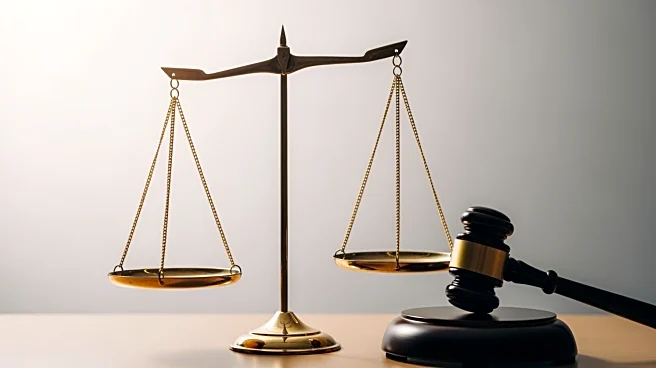What's Happening?
The Supreme Court has agreed to hear a case concerning the legality of counting late-arriving mail ballots, a practice targeted by President Trump. The case originates from Mississippi, where a panel of judges
from the 5th U.S. Circuit Court of Appeals ruled that the state's law allowing ballots received after Election Day to be counted violates federal law. Mississippi is among 18 states and the District of Columbia that accept such ballots, provided they are postmarked by Election Day. The case will be argued in late winter or early spring, with a decision expected by late June, potentially impacting the 2026 midterm elections. Mississippi Attorney General Lynn Fitch warned that the appellate ruling could have destabilizing effects nationwide if upheld.
Why It's Important?
The Supreme Court's decision could significantly impact election processes across the United States, particularly in states that rely heavily on mail voting. If the appellate ruling is upheld, it could lead to changes in how ballots are counted, potentially affecting close races and altering election outcomes. The case also highlights ongoing debates about election integrity and the balance between accessibility and security in voting. President Trump's executive order requiring votes to be cast and received by Election Day underscores the political stakes involved, as some Republican-led states have already moved to restrict the counting of late-arriving ballots.
What's Next?
The Supreme Court's ruling will likely influence legislative actions in various states regarding mail voting laws. States that currently accept late-arriving ballots may need to revise their laws to comply with federal standards if the appellate ruling is upheld. Additionally, the decision could prompt further legal challenges and legislative efforts to address perceived vulnerabilities in the electoral process. Stakeholders, including political parties and civil rights groups, will be closely monitoring the case, as its outcome could shape future election policies and practices.
Beyond the Headlines
The case raises broader questions about the balance between ensuring election security and maintaining voter accessibility. Legal and ethical considerations about disenfranchising voters, particularly overseas service members, are central to the debate. The decision could also influence public confidence in the electoral system, as changes to mail voting procedures may affect perceptions of fairness and transparency.









